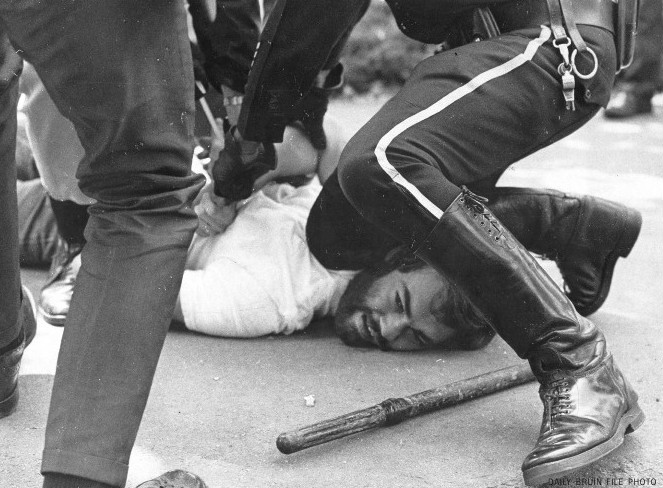Alexandra Tashman: Activism should refocus on public speech, tangible goals

By Alexandra Tashman
Sept. 23, 2013 11:49 a.m.
Last summer, I took my politically inclined younger sister to her first protest, and suffice it to say she was less than impressed.
She told me it had been a waste of our time because the demonstration was made up mostly of twentysomethings and there wasn’t enough news coverage –nothing was going to come of our efforts, so why did we even bother?
She, like many young people, was completely disillusioned with the idea of political mobilization. And she’s not alone. These days it seems like student advocacy only gets attention on a large scale when protest pictures from the Berkeley Free Speech Movement wind up on an Urban Outfitters T-shirt.

To adapt to the more institutional channels popular among advocates today, students need to focus on goals that are tangible, local and relevant.
The state of protest and advocacy at UCLA today in many ways defies its turbulent history. UCLA has a long legacy of practical and successful protest.
Peaks include the movement to establish a Chicana/o Studies Department on campus in 1993, which only ended after protesters went on a hunger strike for several days in front of Murphy Hall and others took over and vandalized the faculty center, leading to a large number of arrests. As a result, Chancellor Charles E. Young agreed to create the César Chávez Center for Interdisciplinary Instruction in Chicana and Chicano Studies, which eventually became the fully established Chicana/o Studies Department.
While such extreme methods are not necessarily the best route toward achieving political change, there is great merit in how those activists worked passionately on a specific issue in order to bring it to national attention.
Other examples of targeted activism include university-wide divestment from apartheid South Africa in the late 1980s, which employed a number of marches and protests on several UC campuses to achieve success.
For the most part, the types of advocacy UCLA students currently engage in adhere to more classical legal channels, which include writing letters, lobbying legislators, setting up meetings with unions and flying to conferences around the country.
This new manifestation of activism has not only so far lacked any major successes, but the lack of active protest also makes it often seem like, in many ways, UCLA students either don’t care about their voices being heard, or simply do not think they can effect change.
That’s not to say that recent years have been devoid of protest; students objected vocally to the budget cuts and tuition hikes over the past five years and the Occupy Wall Street movement found momentum on several campuses.
But last year’s passage of Proposition 30, a tax increase to better support California public schools and universities, is perhaps the only recent example of UCLA students contributing to a broadly successful movement.
Part of this problem is that UC students are choosing to tackle too lofty or abstract goals. A perfect example is the University of California Student Association board’s recent decision to focus one of their primary campaigns this year, “F.I.R.E.,” on reforming prisons and increasing state funding of higher education.
The goal is a noble one, to be certain, but not one that can be directly solved by UC student action. I find myself hard-pressed to believe that our fees are best spent trying to overthrow the prison-industrial complex.
Such abstract goals are, in the end, non-constructive. As students, we wield a great deal of power, but we need to use it in a way that gets us somewhere.
Since we’ve decided to pursue advocacy in a more tame way, we need to focus that energy on savvy, targeted goals through which students have the ability to produce evident change.
Yes, the tactics of previous generations, like hunger strikes or storming the UCLA Faculty Center, are perhaps no longer the wisest or most popular route. But that doesn’t mean that students cannot and should not be publicly standing up and speaking about what matters to them regularly and repeatedly.
Without a doubt, students have successfully changed the course of politics in this state and this country, and UCLA students can continue to do so.
Apathy is the real waste of our time, and so is shaking one’s fist at the moon. We have the power, we just need to use it effectively.

